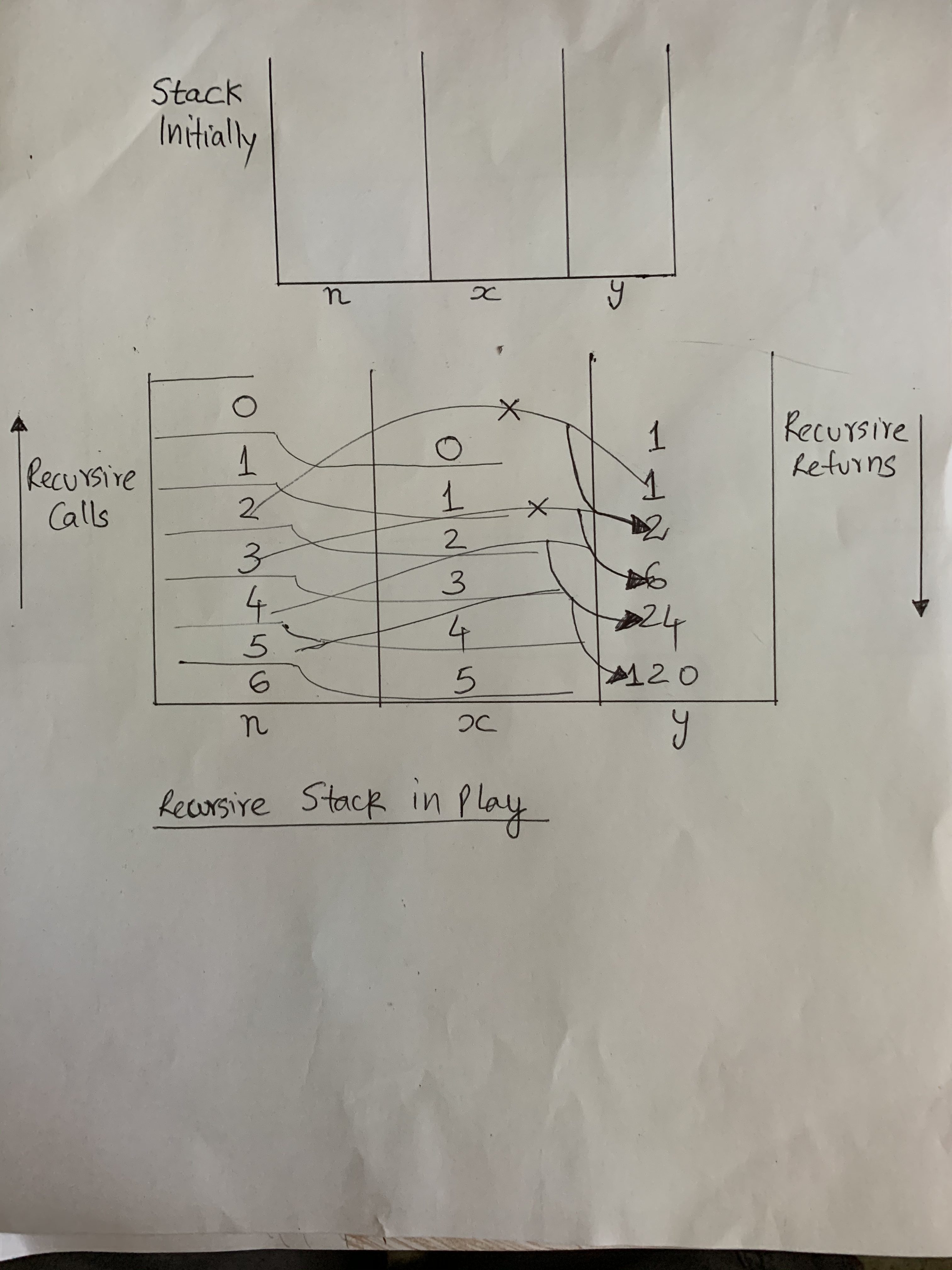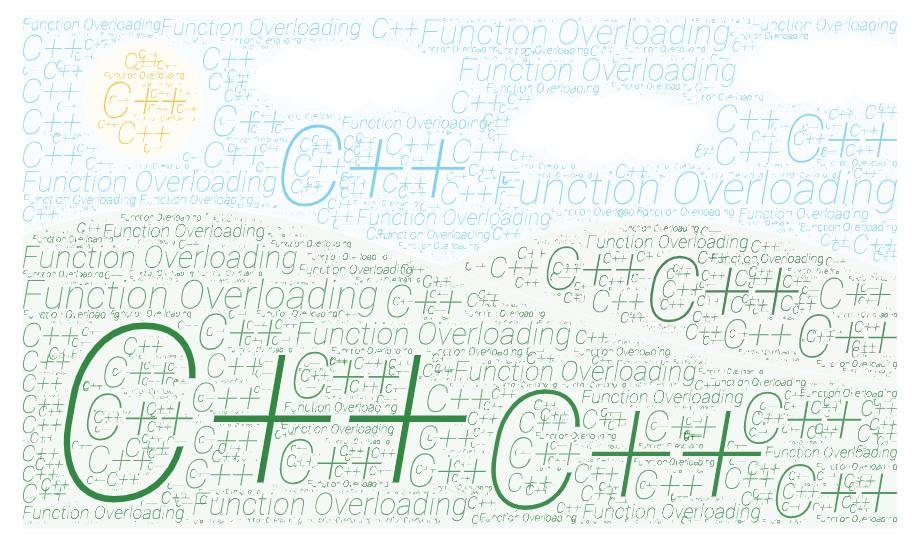Recursion in C
Recursion
Recursion and Iteration are two different concepts of achieving a result by a number of repeated operations. Iteration involves use of for, while and do-while loops for the repeated operation until specified condition. Recursion involves a recursive function calling itself several times until specified condition.
A recursive function represents the most simpler form of a complex task. Suppose the complex task can be divided into ‘n’ simple tasks. Now after ‘n’ recursive operations involving the same recursive function, the result is obtained. Recursion could also be invoked by recursive chains in which more than one function calls each other.
Now, a recursive definition or algorithm could be defined as a simpler version of a complex task. This simpler case is repeated several times until the required result is obtained at specified condition. While writing a recursive definition, we should make sure that the recursive calls will terminate after specified operation. Otherwise, it will result in a non-terminating sequence of calls or an infinite loop.
Consider a factorial function n!. We could divide n! into simpler cases of itself and thus generate a recursive definition as follows –
n! = n(n-1)! = n(n-1)(n-2)! = n(n-1)(n-2)!(n-3)!
Thus, the recursive definition is,
n! = 1 if n = 0 n! = n*(n-1)! if n > 0
The recursive algorithm for the function fact() could be –
if(n == 0)
return(1);
else
return(n*fact(n-1));
Thus the recursive routine for factorial function could be –
int fact(int n)
{ return ( n==0 ? 1 : n*(fact(n-1))); }
Below are sample recursive functions in C –
1) Factorial
Recursive definition
n! = 1 if n = 0
n! = n(n-1)! = n(n-1)(n-2)! = n(n-1)(n-2)!(n-3)!
Recursive algorithm
/*recursive algorithm for fact(n)*/
if(n == 0)
return(1);
else
return(n*fact(n-1));
C Program
/*C routine for fact(n)*/
int fact(int n)
{ return ( n==0 ? 1 : n*(fact(n-1))); }
2) Multiplication
Recursive definition
Let a and b be two integers then a x b is recursively defined as,
a x b = a x (b-1) + a = a x (b-2) + a + a etc ..
Recursive algorithm
/*recursive algorithm for mult(a,b)*/
return(b == 1? a : mult(a,b-1) + a);
C Program
/*C routine for mult(a,b)*/
int mult(int a, intb)
{ return ( b == 1? a : mult(a,b-1) + a); }
3) Fibonacci Series
Recursive definition
fib(n) = 1; if n = 0 or n = 1
fib(n) = fib(n-2) + fib(n-1)
Recursive algorithm
/*recursive algorithm for fib(n)*/
if(n == 0 || n == 1)
return(n);
else
return (fib(n-2) + fib(n-1));
C Program
/*C routine for fib(n)*/
int fib(int n)
{
if(n == 0 || n == 1)
return(n);
else
return (fib(n-2) + fib(n-1));
}
4) Binary Search
Recursive algorithm
/*recursive C program for binsearch()*/
/* a[i] is the sorted global array */
/* n is the number of elements in array */
scanf("%d", &x); /*inputs number to be searched - global*/
low = 0; high = n -1;
int binsearch(int low, int high, in a[], X){
int mid;
if(low > high){
return(-1);
}
mid = (low + high) / 2;
return(X == a[mid] ? mid : X < a [mid] ? binsearch(low, mid-1, a[], X) : binsearch (mid+1,high,a[],X))
}
Recursive Chains
Recursive chains involves two or more than two functions calling each other. The following is the structure of two function calling each other –
a(formal parameters) b(formal parameters)
{ {
. . . . . .
. . . . . .
b(arguments); a(arguments);
} }
Conditions should be set that the recursive chains do not form an infinite loop.
Stacked view of recursive calls
Let us take the example of factorial function and explain the stacked view of recursive calls –
int fact(int n)
{
if(n < 0)
printf("\nInvalid Input");
else
return ( n==0 ? 1 : n*(fact(n-1)));
}
—– Or —–
int fact(int n)
{
int x, y;
if(n < 0)
printf("\nInvalid Input");
else if(n == 0)
return (1);
else{
x = n - 1;
y = fact(x);
return (n*y);
}
}
Suppose the call is –
printf("%d", fact(6));
The various stages of recursion could be viewed by using a stack. Every time a recursive call is made, new generations of local variables and parameters are generated and are pushed to a stack as a recursion is entered. Now, as the recursive function returns, each generation of local variables and parameters are referenced by popping the stack till all returns are completed. Below image shows the Recursive Stack in action –


